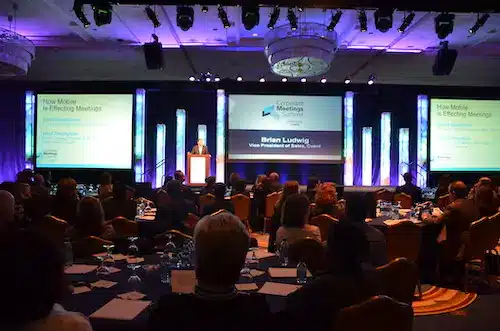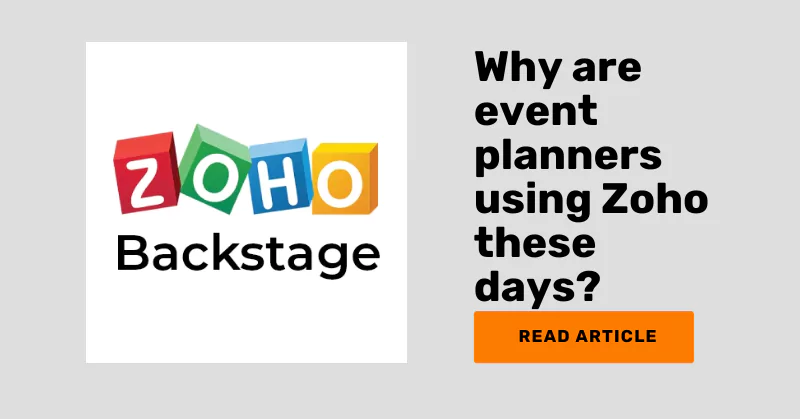Welcome to the ultimate guide on corporate event planning tips!
If you’re navigating the intricate world of corporate events and aiming for success this year, you’re in the right place.
Corporate event planning is more than just coordinating logistics. It’s about creating memorable experiences that align with your company’s goals.
In this article, we’ll delve into invaluable tips to streamline your event planning process. This will ensure your corporate gatherings are not just successful but leave a lasting impact.
A. What is the meaning of corporate event planning?
Corporate event planning is the execution of events carried out to achieve business objectives. It can take the form of product launches, conferences, meetings, and other types of business gatherings.
Event planners specializing in this field are called corporate event planners. They have to arrange venues, manage budgets, create event schedules, and carry out logistics.
Corporate events align with company goals, foster networks, and help create a better brand presence.
To know more, you must check out our master corporate event planning guide.
B. How do you plan a successful corporate event in 2024?
These corporate event planning tips will help you streamline your event planning process.

- Begin by defining your objectives and your target audience. Keep it precise so you can have more focused efforts in the right direction
- Set a realistic budget. Access our corporate event budget guide for free using the hyperlink
- Select a venue that fits well within your budget and also aligns with company values
- Get a reliable team for various event planning processes and delegate responsibilities
- Arrange for a caterer to keep in mind the dietary preferences and restrictions of people
- Utilize technology for various purposes like ticket generation and entry authorization
- Have the right activities and design your event layouts to encourage networking
- Collaborate with vendors closely to ensure everything is getting done on time
- Develop an intricate event schedule so you can monitor all activities effectively
- Focus on your learning as an event planner, stay updated with trends in the event industry
- Collect client and attendee feedback to improve upon your corporate event planning skills
C. Corporate event planning tips
You’ve finally arrived at the section where you’ll find all corporate event planning tips.

These corporate event planning tips are designed to help beginners and professionals alike.
- Venue: Corporate events were preferably organized within closed spaces. This ensures privacy, exclusivity, and security. However, you need to think about your event goals separately while selecting a venue
- Budget: Make sure you’re constantly working on your budget by collaborating with suppliers and tracking expenditures with precision
- Scheduling: Create a realistic schedule for tasks and keep up with it. For seamless execution, you need to estimate extra time for each task
- Plan in advance: You need to leave room for mistakes and mishaps. They can be best handled when you have more time on your hands to solve such issues
- Infuse themes: This may seem like a very unnecessary thing to do but it can elevate your corporate event. Ensure that the theme aligns with your company’s mission and message
- Team: Event planning is more than a one-man job, you need an effective team. Spend time to find the right people to work with and when you find them, don’t let them go. Make it a habit to delegate tasks and rely when needed
- Audiovisual hiccups: Always test your audiovisual and projector setup well in advance. Attendees hate delays caused by technical issues
- Audience-centric approach: While it’s a corporate event, it’s still designed to give attendees a good event experience. Therefore, you must keep your audience at the center of your event planning process. Learn their likes, dislikes, and cultural preferences
- Breakout time: Note that people can only concentrate for 45 minutes to one hour in a go. So, divide your event into smaller sessions and give attendees time to unwind now and then
- Quality over quantity: While this may seem redundant advice, it’s a common error with most events. Event planners try to provide too much but fail miserably at quality control. Focus on a few good elements of the event and excel at that
- Create variety with similarity: If your event only has speakers and presenters, switch it up with different speaking and delivery styles. For example, there can be a video presentation followed by a presenter who follows a Q&A format
- Technology integration: Corporate event planners love the use of new technology that can be used and adapted to their own business. Leverage the VR and AR tools that are available to create a technologically immersive experience
- Format: Gone are the days when corporate events were either virtual or in person. Lines have blurred and corporate events are now becoming the leading phygital events
- Meaningful gifts: Gifts are a great way to leave a lasting impression and maintain brand presence even after the event. Make sure you choose thoughtful gifts for attendees
- Don’t neglect food: Most people are coming to your event for networking and knowledge, but don’t forget their human needs. They will pay attention to the food and so should you
- Extra supplies: Keep extra notepads, pens, and devices handy
- Intentional networking opportunities: You can’t expect people to just arrive and interact. You need to facilitate networking with seat placement, games, and conversation
- Accessibility: Consider including language interpreters, dietary options, and wheelchair accessibility. This will be appreciated by all attendees and not just one person with special needs
- Sustainability: Minimize waste and opt for eco-friendly practices at your event. The linked guide will help you make your event sustainable without breaking the bank
- Speaker coaching: All knowledgeable individuals may not be great speakers. Highlight your expectations and share guidelines like the time limit and necessary inclusions. This will ensure that the attendee experience is far from boring
- Post-event analysis: Even before your event begins, you need to have your survey sheets (printed or digital) in place. Share right after your event to get the maximum input on it
- Interaction: Interact with your audience via mail or apps before and after the event. This will help you notify them about any last-minute changes and also gather feedback. It can also become part of your crisis communication plan
- Photography: Don’t just hire the most affordable photographer or videographer for your event. You must also guide them about the story you’re trying to convey through the photos that will be clicked
- Continuous learning: Keep getting your dose of event planning knowledge through our LinkedIn community
- Sponsorships: You need to be innovative with your sponsors. Don’t just get the most obvious brands on board. Rather, you can try to creatively connect different brands with your company
- Vendor relationships: An event planner is nothing without his or her vendors. Build relationships of trust and mutual benefit. Maintaining healthy relationships with your vendors will help you secure better service and discounts
- Crisis drills: Conduct mock drills with your staff and team for unfavorable situations like fire and stampedes
- Information source: Establish a single point of contact for each event activity. For example, only one contact will inform you about the decor’s progress. This will prevent you from getting overwhelmed.
- Corporate event planning tips for the event day: Avoid having defined roles on the day of the event itself. Have overlapping responsibilities so that nothing gets overlooked and there’s more than one person in charge of everything
D. FAQ
Here are some common questions asked by people seeking corporate event planning tips:
1. How can I measure the success of a corporate event?
Key performance indicators or KPIs can help you measure the success of corporate events effectively.
You can set benchmark KPIs for attendance, engagement, and sales. This will help you evaluate success.
Additionally, you can also get insights and draw lessons for future events.
2. What is the role of contingency planning in corporate events?
Contingency funds are allocated in the early stages of budget planning. They help you conquer any potential and unforeseen challenges. It also helps if you collaborate with your team to know all the problematic situations you may encounter.
Having backup plans in place will help you face all event planning hiccups effectively.
3. How far in advance should I start planning a corporate event?
You should begin planning your event 6-12 months in advance. For small-scale events, 3 months is sufficient too.
These timelines allow you to have enough time for venue selection, vendor coordination, and addressing challenges.

4. How do I get corporate gigs?
If you’re a beginner and finding these corporate event planning tips useful, it’s time you get started.
You can build a profitable business by organizing events for various companies.
However, to get more corporate gifts, you need to:
- Show that you’re an expert in this field. You can do so by building a strong portfolio with all your experience
- You need to be a more visible event planner. You can do this by having your website or social media channels
- Network with people in the event industry. A good way to do that is to join our LinkedIn community of event planners
- A great way to rope in more corporate gigs is to host webinars useful to HRs. For example, you could host a webinar on ‘corporate event planning tips’. This way, you can pitch your services to your target audience easily at the event of each workshop
- Collaborate with venues and suppliers so they can pitch your services to clients who reach out
- Invest in advertising your corporate event planning service
- Network with HR departments and professionals of various companies. They’re likely to get you corporate event-planning gigs
Lastly, work hard to specialize in this field. Learn industry trends and get a strong hold over specific events like phygital events and virtual events.
E. Concluding corporate event planning tips
Congratulations! You’ve now equipped yourself with a comprehensive set of corporate event planning tips.
As you step into the dynamic landscape of event management, remember, that success lies in the details.
Whether it’s choosing the right venue, crafting engaging themes, or embracing technology. Each tip contributes to creating an unforgettable experience.
Now, go ahead and plan your corporate event with confidence!






